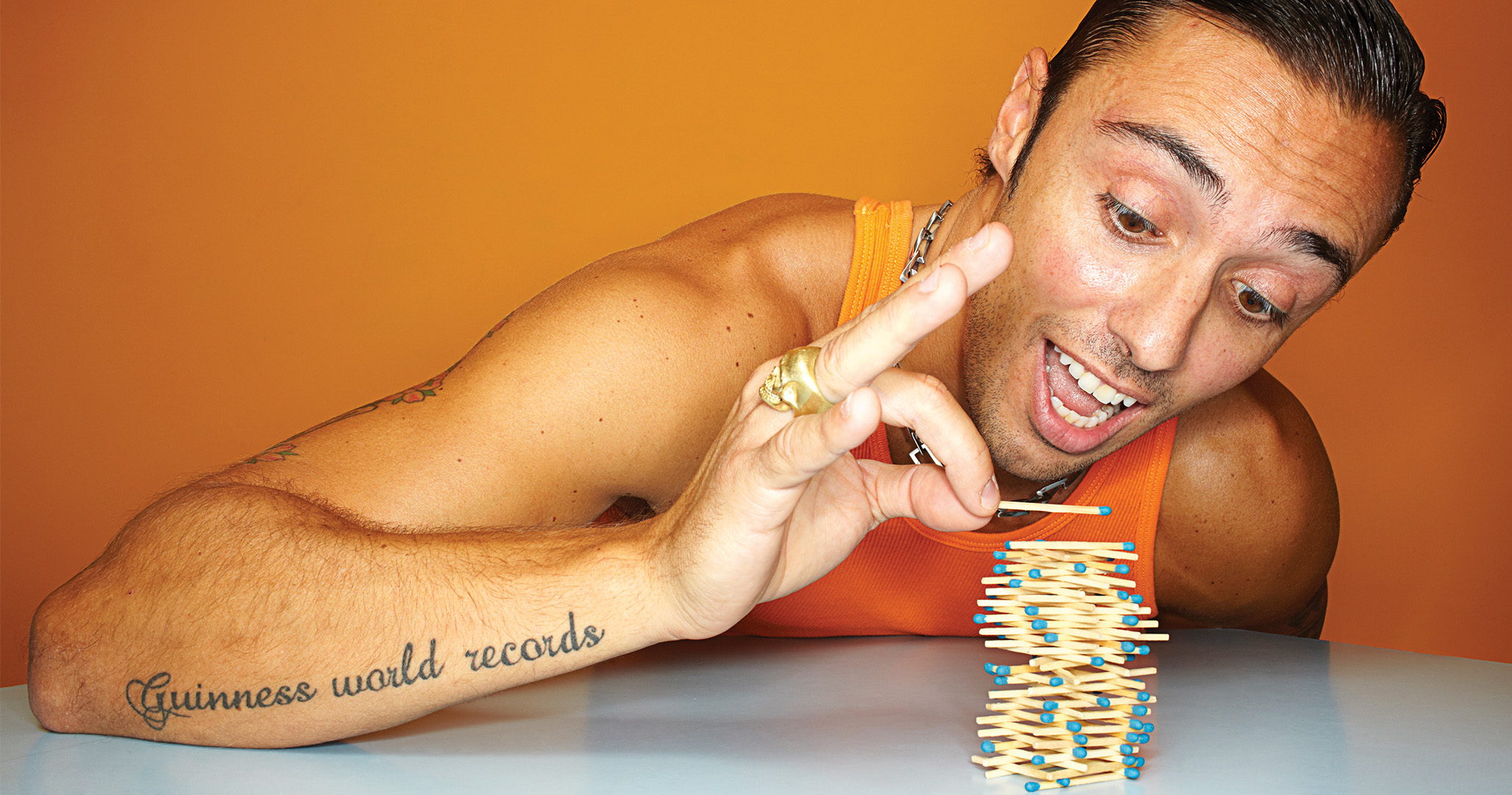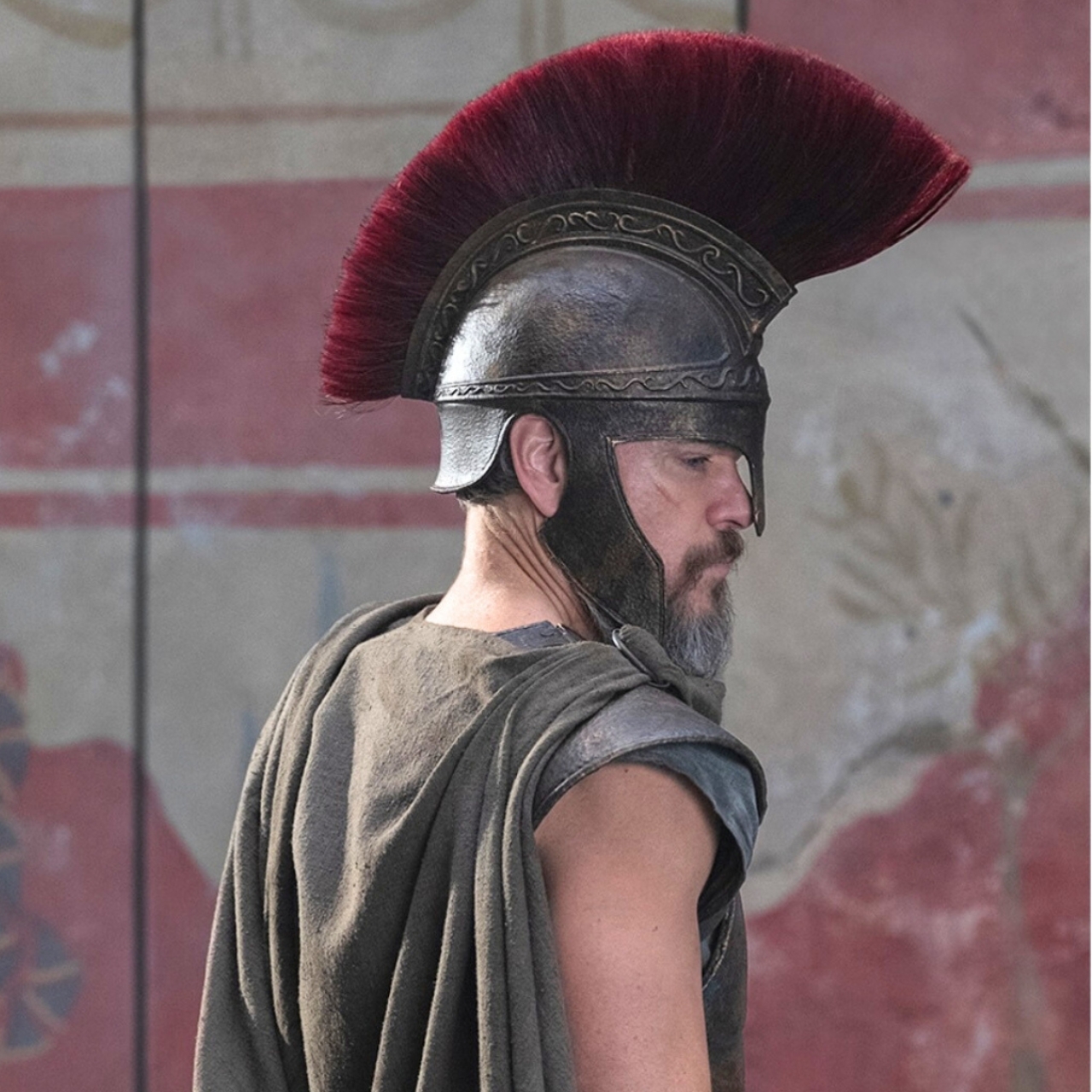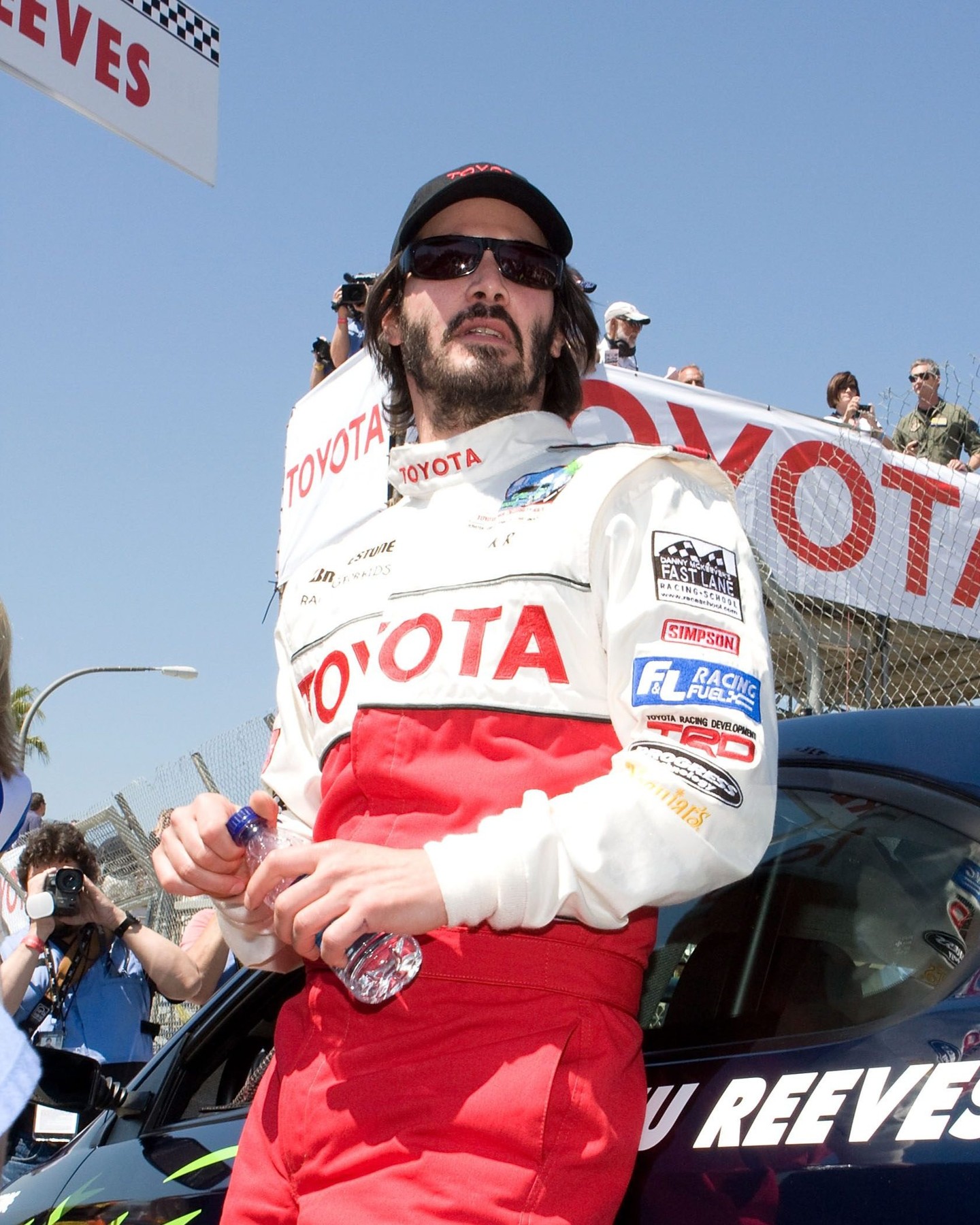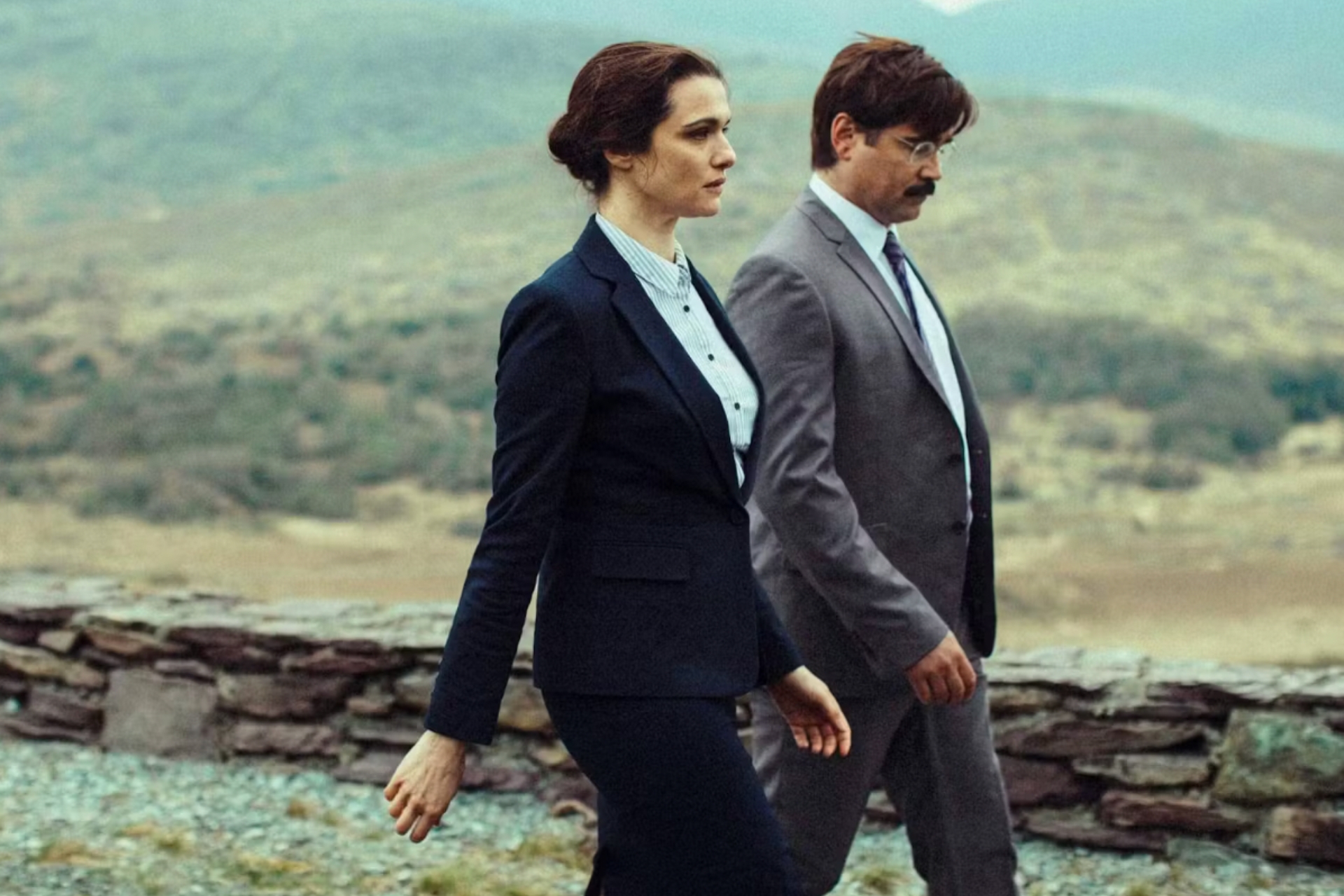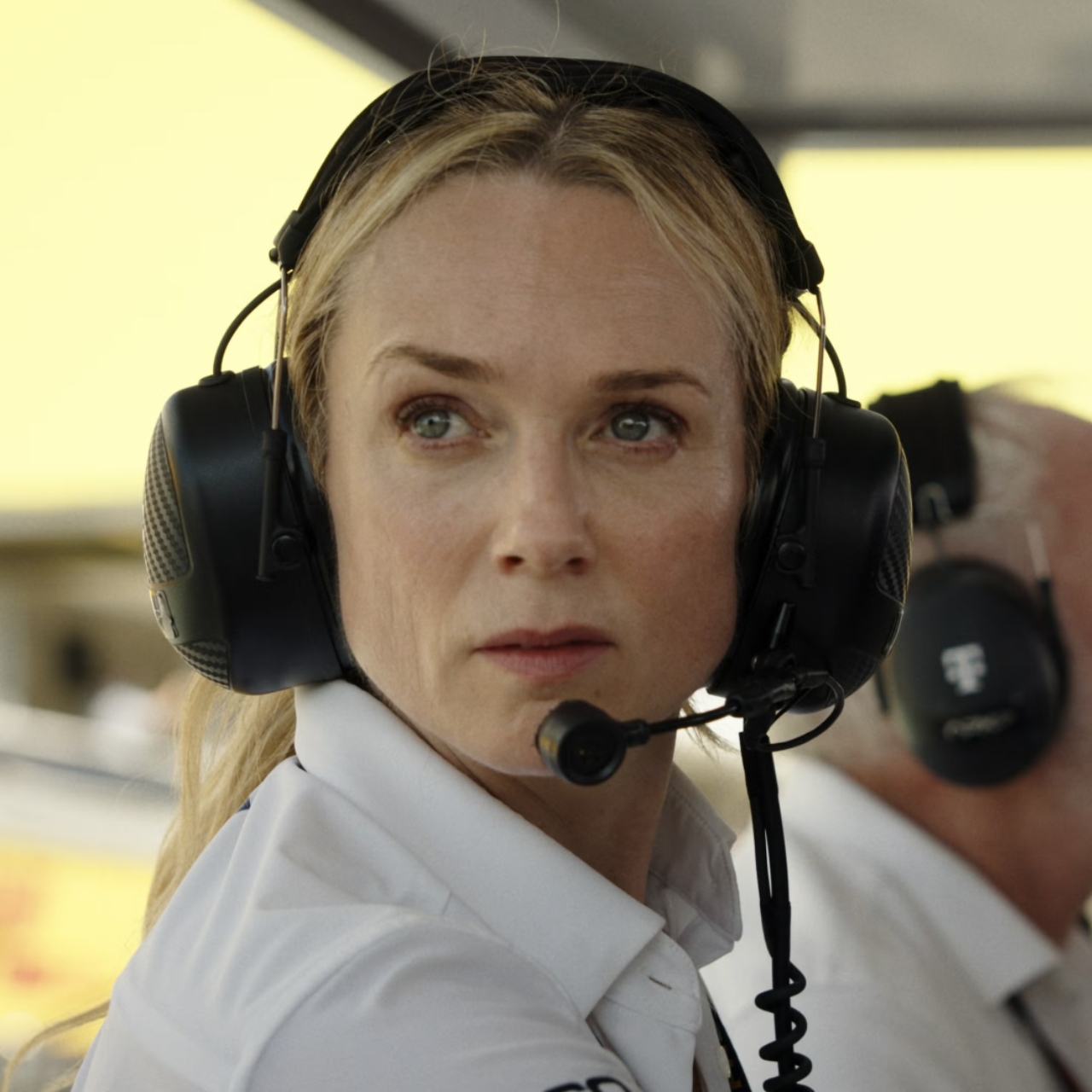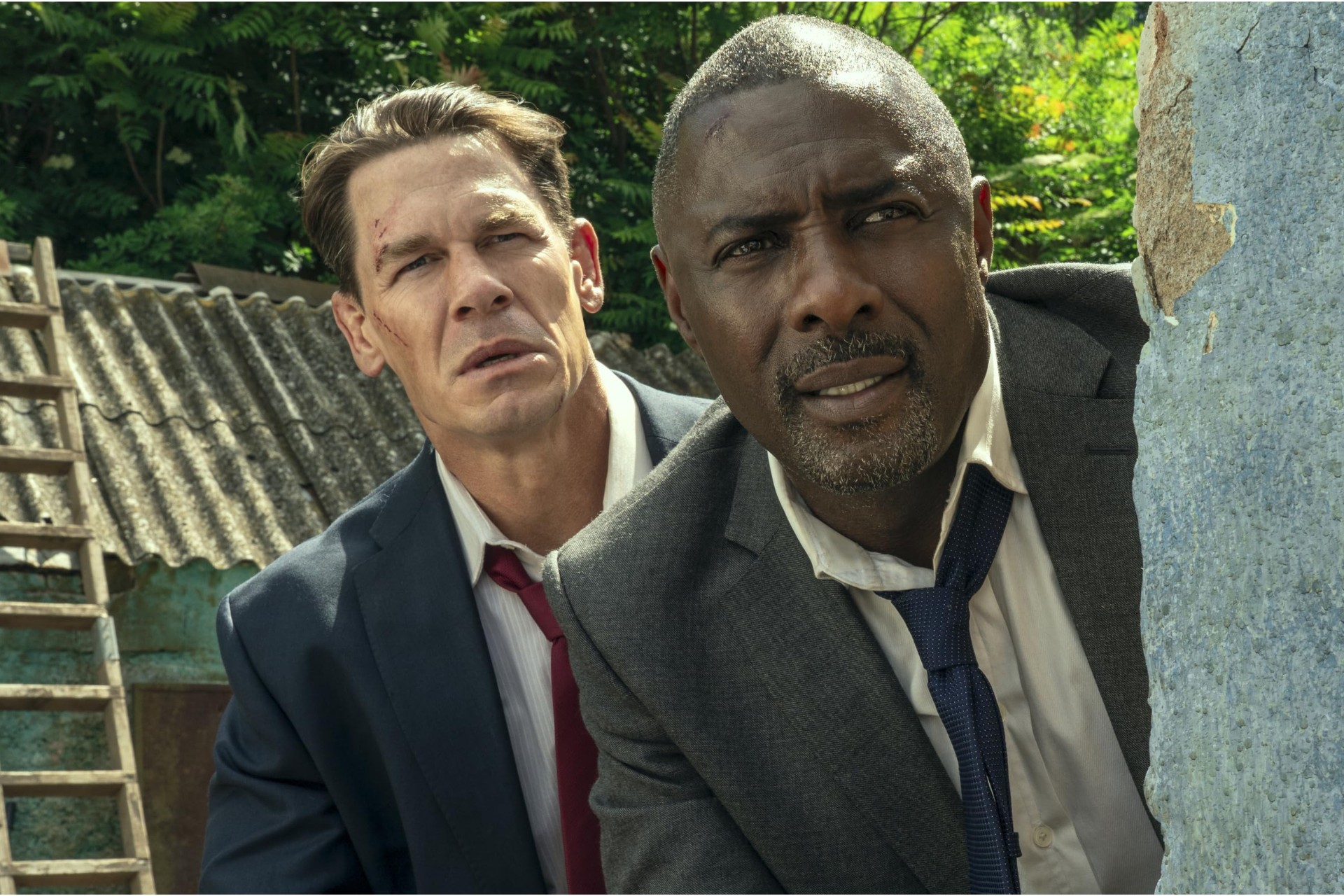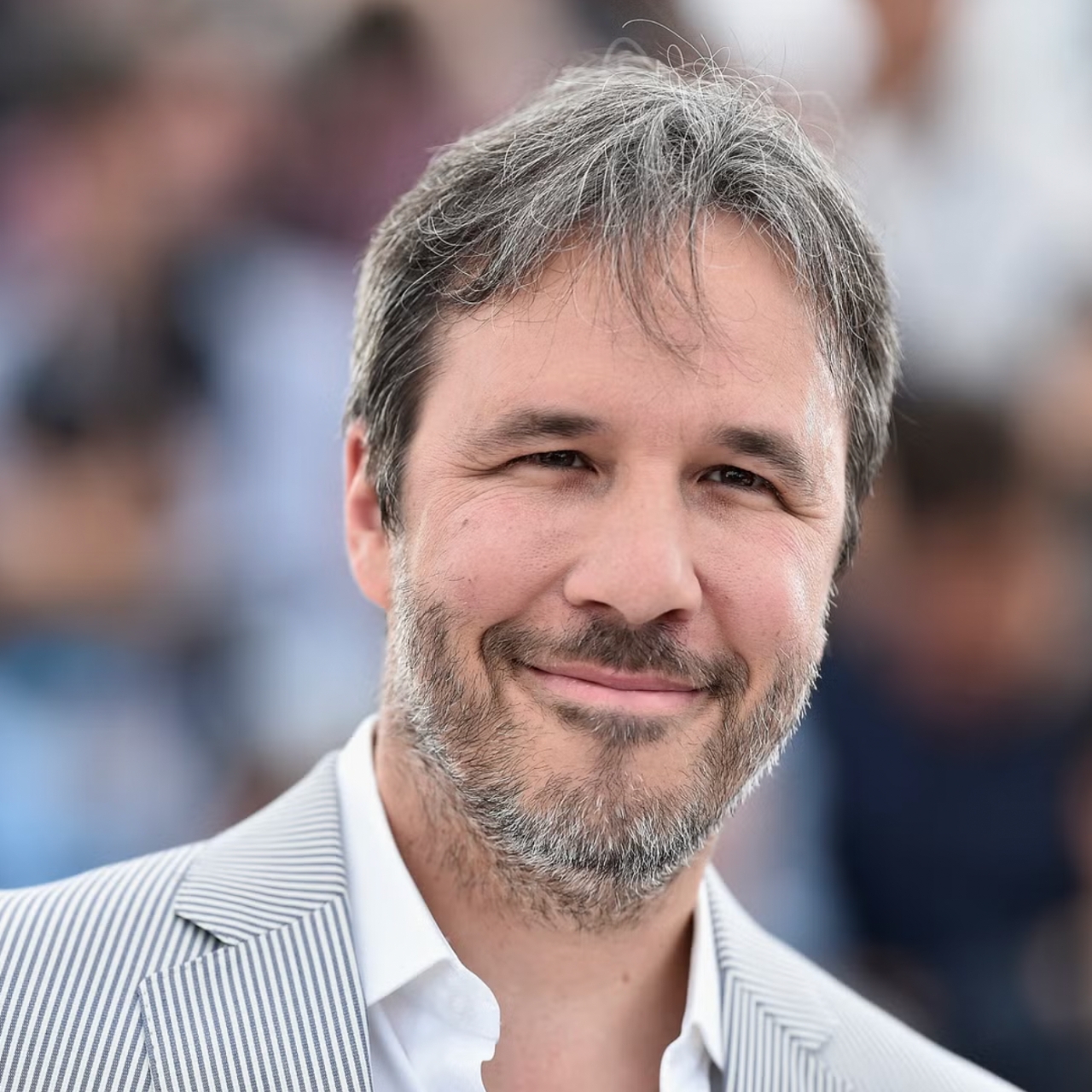MILAN, A SUNNY weekday morning in early spring, and Silvio Sabba (above) is showing me his bulletproof core. He’s standing on one leg at the end of a wooden balance board – chest raised, back straight – and bending his standing knee to squat as low as he can. Blood rushes into his muscles. He pushes back up to the starting position through his heel, slowly and controlled, then switches legs and repeats.
Pistol squats might not look like much. But to perform textbook ones like these – particularly on a balance board, the unsteady surface forcing you to make microscopic adjustments to your movements and posture – you’d better have a powerful lower body. Collectively, your quadriceps, hamstrings and glutes are put under intense pressure; so, too, are your core and the muscles of your lower back.
Good luck. Because before long, your muscle fibres will start to tear. Even regular gym-goers will experience this sensation as pain – your muscles are ripping, after all – but for Sabba, what was once painful is now just a prelude to growth. Cells shoot through his body like electrical currents, and he’s starting to feel alive. He smiles because he knows he’s good at these. Officially, he’s the best.
When you think of world-record holders, maybe you imagine Lionel Messi taking home the Ballon d’Or eight times. Or Margaret Court and her 64 (including doubles and mixed doubles) Grand Slam titles. Or Usain Bolt for running 100 metres in 9.58 seconds. Whatever else it may be, it’s unlikely that a mental image of Sabba will form in your head (perma-tanned, slicked back hair, usually in a tracksuit, always talking with his hands). Nevertheless, over the past 15 years, the Italian fitness trainer and gym owner has broken around 700 world records – more than anyone else, ever. More than Serena Williams, Michael Jordan, Ian Thorpe, Real Madrid, Muhammad Ali and the Beatles combined.
These days, world records change hands almost daily, but Sabba still holds more than 200, one of which is the record for holding the most records. He can balance the most sugar cubes on his chin (17), pick up the most uncooked grains of rice with chopsticks in a minute (53) and hold the most eggs on the back of his hand (12). Of course, many of Sabba’s records involve pistol squats; just earlier this year, he stood on a bed of machetes while completing 19 reps in a minute. “Don’t try it at home,” he tells me, without apparent irony.
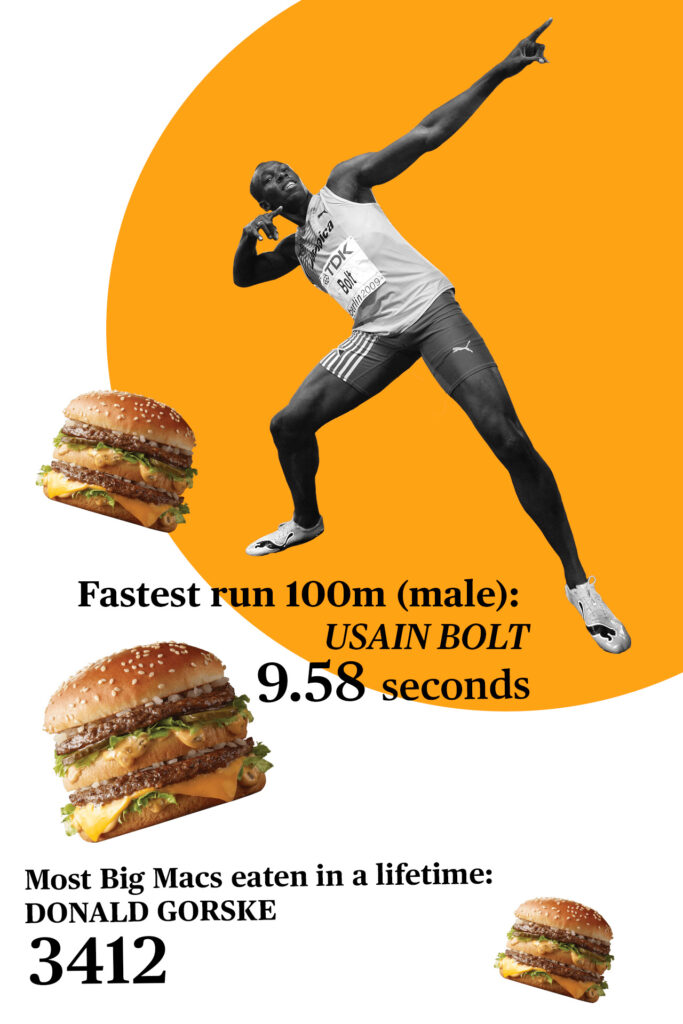
It was Guinness World Records, the British reference book turned international franchise, that put me on to Sabba, its undisputed champion. His records require dozens of discrete skills, the bulk of which he learns specifically for each attempt. Although Guinness World Records is responsible for certifying his feats, neither he nor they can confirm the exact figure, and I don’t blame them.
The first edition of The Guinness Book of Records, published in 1955, was a slight and slender reference book. Not a single person applied to be in it. Whereas today, more than 70,000 record-setting enquiries reach the book’s offices each year. To say it’s hard to keep up would be an understatement. Yet for nearly seven decades, Guinness World Records has made a lucrative business out of documenting all of life’s outstanding human achievements, as well as feats of the natural world.
Until recently, my thoughts on Guinness World Records were neutral, if not casually approving. In the 1990s, I grew up reading their books; I found the world’s heaviest cats and people pulling aeroplanes with their earlobes strangely compelling. Who didn’t? Back then, The Guinness Book of Records was the best-selling copyrighted book in the world and had grown to occupy a strange space in global culture. As the organisation likes to shout about, only the Bible sold more copies. By 2003, The Guinness Book of Records had sold 100 million copies in 37 different languages, and spawned a global entertainment empire of television shows, merchandise and museums.
Published annually, the books always covered professional athletes, including many of the all-time greats, but they were also one of the only places where you found pure amateurism celebrated in all its flawed glory. The oldest female water skier. The man with the longest fingernails. The biggest biscuit ever baked. There was always more coverage than is possibly healthy about such matters. But in our extremely online culture, I had assumed Guinness World Records’ time in the spotlight was over. I was wrong. If anything, the outrageous business of seeking greatness is thriving, and suddenly, it seemed to be following me everywhere.
In early March, I was shopping at a newsagent in south London, where I live, when I came across the news. Don Gorske, a retired prison guard from Wisconsin, had retained his Guinness World Record for most Big Macs eaten in a lifetime after tucking away 728 burgers in a year – bringing his lifetime total to 34,000. Since his first burger in 1972, he has kept all the receipts. “It was love at first bite,” Gorske, 70, told reporters. “Many people thought I’d be dead by now.” The tabloids jumped on the story, one emblazoned “The Big Mac Daddy” across its front page. It was everywhere across social media, too. An Instagram post from Pubity, an online media brand targeting Gen Z, received more than 200,000 likes.
The point is, Guinness World Records was somehow not only surviving but wildly popular again. At some point in the past few months, as if we didn’t have enough to worry about, Guinness World Records was also getting weirder and more controversial. Not ideal timing with the Paris Olympics around the corner, when record-breaking mania strikes all around the world.
“We’re CONSCIOUS that sometimes we’ve been USED FOR POLITICAL ENDS... we don’t engage with Russia at the minute”
ACCORDING TO GUINNESS WORLD RECORDS, three million copies of its book are sold each year. Healthy figures in the age of YouTube and TikTok, sure, but down from nearly four million in the glory years when they sold more spin-off titles, and printing and distribution were cheaper. Its enduring success, it turns out, is part of a carefully calculated pivot. Realising it was sitting on valuable intellectual property, the organisation started licensing its brand and made its adjudicators available for hire at live record attempts; this sped up a typically lengthy documentation process, but more importantly, it opened up the competitive world of record breaking to anyone and everyone.
The new adjudicator service cost £6,000 (about $11,600) for individuals. Naturally, though, not only individuals want the title of “world’s greatest”. If large and wealthy companies offered to pay for “assistance” to pull off promotional records – or “bespoke record-based solutions” in the parlance of Guinness World Records – there was no longer anything standing in their way. Such record-breaking deals remain contentious even though they stretch back to the late 1990s, “when Coca-Cola set the Guinness World Record for the largest ice-cream float, and to no one’s surprise, decided to forgo the traditional root beer for one of the company’s own Coca-Cola products,” as Larry Olmsted writes in Getting Into Guinness (2008).
By my count, 194 brand-marketing case studies feature on Guinness World Records’ website, including Adidas, McDonalds, the Bill & Melinda Gates Foundation and IKEA, as well as lesser-known companies like Crep Protect, Big Trick Energy and Montana Silversmith. I found it mildly amusing that Panasonic built the largest plastic toy train track (to showcase a new battery going on sale) and that Bank of Ireland staged the biggest tap dance lesson (for an advert about making contactless payments with a simple ‘tap’).

A few weeks after the Big Mac Daddy coverage, Guinness World Records was back in the headlines, but this time no one was laughing. “Guinness World Records accused of whitewashing repressive regimes”, read the headline in The Times, the UK’s oldest national newspaper, on March 24. The article showed that there had been a recent surge in records set in countries governed by authoritarian regimes, including Saudi Arabia, where 135 out of 223 records arose from paid-for consultations, or “bespoke record-based solutions”. Some of Saudi Arabia’s newest records include ‘largest covered water reservoir for storing drinking water’, ‘largest multi-effect distillation desalination unit’ and ‘largest dental hospital’.
It’s no secret that after decades of isolation, Saudi Arabia, under its Crown Prince Mohammed bin Salman Al Saud, is undergoing a rapid transformation. As part of a national effort to reshape the kingdom into a global economic power and wean itself off a financial dependence on oil, billions have been invested into football, golf, Formula 1, boxing and tennis. Intense media scrutiny regularly identifies these ongoing investments as “sportswashing”. Could it be an attempt to use sport’s mass appeal to cover up human rights abuses?
It seems almost farcical to me that an organisation as deeply unserious as Guinness World Records has been caught up in such a big scandal. And although it’s low- hanging fruit, the whole thing seemed to pose deeper, existential questions about using record breaking as a means for positive marketing. Maybe more to the point: how was this even possible? Does Guinness World Records’ audience really care about water storage?
For Craig Glenday, who became the editor-in-chief of Guinness World Records in 2005, the organisation’s “inclusive approach” comes with risks. “We’re conscious that sometimes we’ve been used for political ends,” he says. “But as soon as we find out it’s happening, we stop.” He points out that “we don’t engage with Russia at the minute”, following sanctions imposed in February 2022. “We look to the UK government to dictate where we can and can’t do business. If they tell us not to touch Saudi, we won’t touch Saudi. But that Times article, I didn’t know where it was going. The headline could just as well have said, ‘British company does business to make money!’”
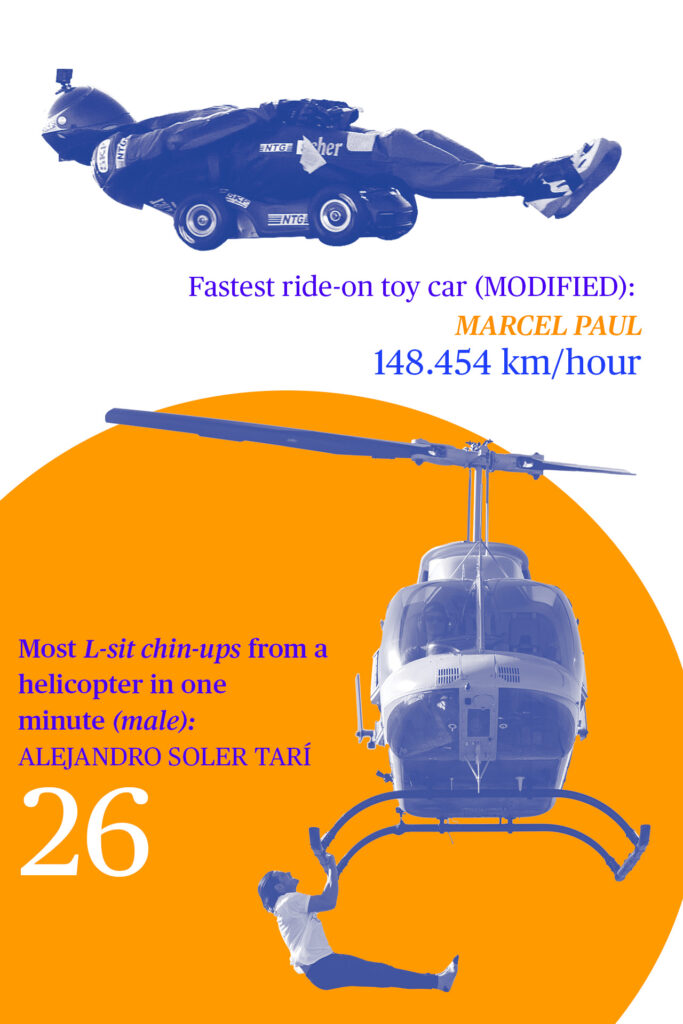
Glenday speaks in a soft Scottish accent. Born in Dundee, he grew up with just one book in the house: “A dictionary with the front and back covers missing,” he says. Discovering the local library opened up his world. “Astronomy, art, movies, sci-fi . . . I couldn’t get enough of it.” When he wasn’t reading books, he took on unconventional jobs. “Organist on a roadside church – that was a good one! It was just off the motorway coming out of Dundee,” he says. “There’s something about trying out different things at a young age that makes you open- minded.” Still, Dundee always felt too small. He left to study in Edinburgh, and eventually made his way down to London to pursue a career in publishing.
When he started working at Guinness World Records, now over two decades ago, “the fear was that the internet would kill off books,” he explains. “We were almost like a proto-internet, sharing small and quirky bits of fun, so everyone said we were especially at risk. Instead, the books became a more useful filter for the tsunami of information that’s out there on TikTok or whatever.” One of the beauties of the books, he says, is the way they present all records as equal. If the planet Mars gets a two-page spread, so do write-ups for cheese. The books always attempt to present information about the world in a way that most people wouldn’t think of: the desert that gets the most rainfall, the highest clouds. For adults who tend to take the world around them for granted, flicking through a book can briefly remind you of what it’s like to be a kid again: questioning everything and constantly being amazed by what’s possible. As Glenday says, “It’s life affirming”.
Increased scrutiny, often with an almost hostile undertone, has also become part of his everyday job. When I mention that the Saudi Arabia records sound, to be polite, rather dull, he seems personally offended. “It might be boring to you, but there will be someone in the world who is interested in desalination plants,” he says. “Believe me, I’ve been doing this long enough.”
That observation is probably right, but I worry it obscures the criticism that Guinness World Records has become less a record of the world as it is, and more a reflection of the outrageous lengths to which people, organisations and regimes will go to be considered the best at something. “I have nothing to do with the business side. I concentrate on the editorial,” he says. “None of the Saudi records will make it into the book. All that stuff stays separate.”
“One of the secrets of our MODERN SOCIETY is that the elite are MEDICALLY ENHANCED, and normal people are not”
WHEREVER THERE IS greatness, there is scrutiny. When critics of Guinness World Records argue that the organisation is growing larger at every iteration, desperate to make more money no matter where it comes from, they could also be talking about the Olympics.
The Paris 2024 Games, beginning on July 26, are “under the most intense financial scrutiny of any Olympics”, according to The Guardian. Organisers promised to replace lavish overspending and corruption with a more transparent and ethical approach, yet French investigators are already looking into alleged embezzlement of public funds and favouritism. A separate investigation has opened a legal probe into payments made towards Tony Estanguet, the Paris Olympics’ chief organiser.
Regardless, a vast opening ceremony will take place on the River Seine. Thousands of athletes will float on boats along a six-kilometre route passing landmarks like the Louvre and Notre-Dame, with hundreds of thousands of spectators expected to line the riverbanks. It will be the biggest sporting event organised in France, featuring 329 events across 19 days. Surfing, skateboarding and other new sports have been added to an already packed schedule.
Some of the events are, let’s face it, a little eccentric. And can anyone remember a recent Olympics that passed without a doping scandal? If spectators really want to witness athletes go faster, higher, stronger, Aron D’Souza thinks he has the answer. He argues that partly because of strict anti-doping rules (which he refers to as the “exploitative practices of the International Olympic Committee”), the Olympics no longer represent the greatest sporting spectacle on the planet or the epitome of athletic excellence. His solution is the Enhanced Games: elite sport, plus performance-enhancing drugs, the smashing of records and million-dollar prizes. The idea is to push the limits of humanity as far as possible, tapping into the wider biohacking movement that’s especially popular with Silicon Valley tech bros.
But what would this mean for athlete safety and traditional notions of sporting integrity? To get a better idea, I went to meet D’Souza at the Enhanced Games offices, based in a private members’ club in west London. On the way, I messaged a friend asking what he thought about the idea of athletes being encouraged to take performance-enhancing drugs. “If people want to shorten their lives by jacking themselves up and transforming into freaks, I say more power to them!” he replied. “If someone can throw a javelin 1.2km, sweet, I’ll watch that.”
Not everyone agrees with my friend, of course. Sebastian Coe, the president of World Athletics and a former great of middle-distance running who shattered multiple world records, recently told reporters: “It’s all bollocks”. Kieren Perkins, a former Olympic record breaker and now the CEO of the Australian Sports Commission, said: “Someone will die”.
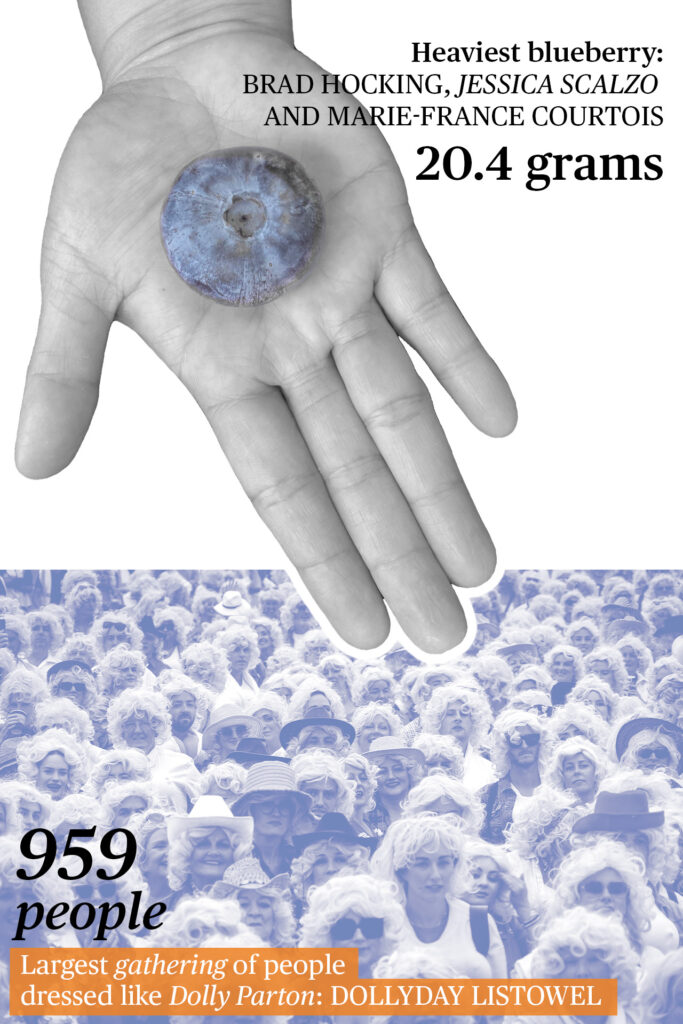
When I arrive for my appointment with D’Souza, he immediately relays the breaking news: the White House had just issued a statement saying they are “deeply concerned” about the Enhanced Games. Dressed in a crisp blue shirt and looking a picture of health, D’Souza is beaming as he tells me this. “It’s an important validation that the highest levels of government acknowledge our existence,” he says.
How did he come up with the idea? In December 2022 in Miami, the Australian-born lawyer and entrepreneur was at the luxury gym club Equinox “flipping through Instagram between sets,” he recalls, “watching all these influencers discussing whether they were natty or not”. (In the world of bodybuilding, “natty” means natural or drug- free.) “I was so taken by this positioning that I went up to a guy who had an amazing physique, and asked if he was natural or enhanced. He said, ‘I take testosterone and anabolic steroids and this and that’. I asked what he did for a living, and he said he was an endocrinologist. I had a light-bulb moment: here you had a medical professional who was enhancing himself openly and honestly.”
D’Souza continues: “One of the secrets of our modern society is that the elite are medically enhanced – whether athletes or business tycoons or celebrities – and normal people are not. It is an information-deficit problem.”
Just who might sign up to this new order is not yet apparent – the retired Australian swimmer James Magnussen was the first person to publicly express interest in competing at the Enhanced Games, saying he’d “juice to the gills” to break records in return for big pay cheques – nor is there a concrete launch date (qualifier events are expected to open the day after the Olympics wrap). But the Enhanced Games does have serious financial backing from the biohacking movement, including a co-founder of PayPal, Peter Thiel, who plans to be cryogenically frozen after his death. This is partly why D’Souza and his colleagues at the Enhanced Games make such bold statements: in their minds, there is a wider purpose at play, beyond sport. Once you start liberalising human enhancement in some parts of life, it’s inevitably going to creep into others.
“The WORLD is filled with fun and amazing people; people trying to make the most of the bit BETWEEN LIFE and DEATH”
IT’S TOO SOON to know if Guinness World Records will ever cover something like the Enhanced Games. If money was on the table, who knows? As Glenday acknowledges – and as the organisation’s willingness to work with Saudi Arabia on records shows – it has always been a commercial venture. It stretches back as far as 1945, when Sir Hugh Beaver, then managing director of the Guinness brewery, was on a hunting trip with friends when he got into a debate about what the fastest game bird in Europe was. No one seemed to know the answer (it was the golden plover). With no internet to verify such facts, Sir Hugh decided to hire the Oxford-educated twins Norris and Ross McWhirter to publish a book of superlatives he could give to pubs as a marketing tool. The brothers already ran a successful fact- finding agency for various newspapers, and Norris had an astonishing memory. He once told a reporter he had learned 15,000 records from the books by heart. “It’s the same as a boy memorising information about baseball,” he said. “It’s a matter of being interested.”
I ask Glenday if everyone at Guinness World Records, which parted ways with the famous Irish stout brand in 2001, has this basic sense of incredulity. “To work here, you have to,” he says. His face lights up when he starts telling me about the time he met the creator of The Simpsons, Matt Groening, at an event. “I asked Matt, ‘What makes the show so successful?’ He replied saying that everyone working on it was fascinated by everything. I like to think that we’re also always asking questions about the world.”
Glenday’s conversation, while never less than engaging, frequently verges on the hyperbolic. I guess this comes with the territory. “We live in a chaotic universe,” he continues. “Recently, I had to take a news app off my mum’s phone. Every minute: ping, ping, ping! Someone stabbed, murdered, attacked. But the world is also filled with fun and amazing people; people trying to make the most of the bit between life and death.”
On Monday, he might be hosting Chris Eubank at the office; on Tuesday, hanging out with Beyoncé at an awards show. He first measured Sultan Kosen, the world’s tallest living human at eight-foot-three (253 centimetres), in 2009. “A gentle giant, but his life isn’t easy,” says Glenday. “People stopping to stare, constantly asking for selfies . . . ” Once, the editor-in-chief flew with Kosen from London to New York in Virgin Upper Class. “His bed extended, but even that wasn’t big enough. So, he spent most of the flight lying down in the aisle.”
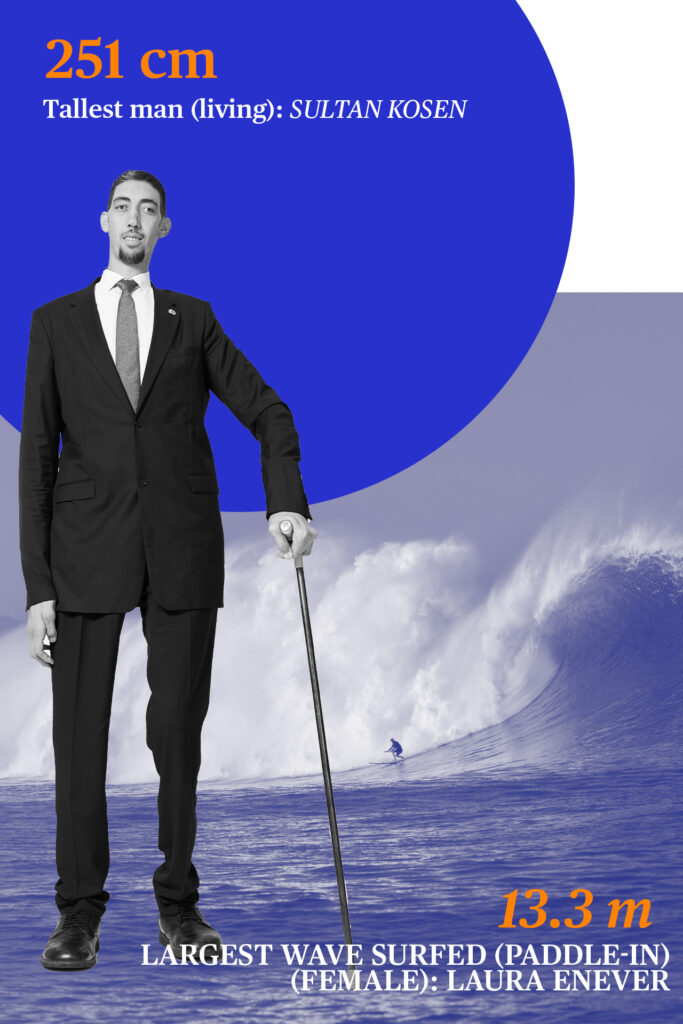
Ultimately, the question at the heart of the record- breaking game is: what compels people to go to such extraordinary lengths? Norris McWhirter recognised the appeal of fame early on, saying of record breakers: “They are desperate to be the person who did something, not just a person”. Much further back, the ancient Greeks memorialised athletic achievements on their tombstones. Indeed, people have seemingly always wanted their moment in the sun. Yet for the Australian surfer Laura Enever, the reverse seems to be true.
“I’m not a competitive person,” she tells me. “I just had an opportunity to ride a really big wave.” Typically understated, she’s talking about the monstrous 13.3-metre wave in Hawaii that she tamed in January 2023. It was the largest wave ever paddled into by a woman. “It had been a foggy and windy morning. But the sun was creeping out, and I saw this huge hump of ocean coming towards me. I knew instantly it was the wave I was looking for. When I took off, it grew even more. By the time I was on my feet, it felt like I was looking down from a skyscraper or something.”
Enever quit the World Surf League’s Championship Tour in 2018 – “just as they started offering equal pay, when I was in the top 10, and achieving everything I had trained for as a kid,” she says – for the excitement of chasing the world’s biggest waves. It’s an unconventional career path, and her friends and family didn’t initially understand the decision. “But they’ve come round,” she says. “They see how happy I am now.”
Back at Sabba’s gym on the outskirts of Milan, I open my bag and take out a box of eggs. I didn’t just come to chat with him; I want to witness greatness. I want to watch him hold 12 eggs in one hand with his palm facing down. Rolling up his sleeves, revealing the words ‘Guinness world records’ (sic) tattooed across his right forearm, he takes around a minute to neatly arrange all of the eggs into a pyramid. This particular record may look underwhelming, but when I have a go myself, I struggle to stack more than six. It turns out you need really strong hands. Also, surprisingly, “balancing things requires you to reduce your heart rate, to reduce the vibrations in your body, ” Sabba explains. “Breathing exercises are the most important thing to practice. Like always, breaking records is about coming up with the right strategy, writing it down on paper and slowly testing out your theories. It’s not about haphazardly trying things.”
His favourite records involve fitness. Hence the massive lats creating an inverted triangle-shaped back and those girthy calves. If he said he was in his mid-30s, you probably wouldn’t doubt him. But he’s 47, and breaking records, he says, “is getting more complicated”. Because eventually everyone must succumb to the effects of time. Muscles disappear, our bodies grow frail, and even Sabba cannot create himself anew. When, after transforming his body, he still finds that his life is not ultimately under his control, he will have to find something else. Breaking records cannot be the ultimate end. But when I put this to Sabba, he simply points to a picture of his 14-year-old son, who has recently started setting records of his own. “Now he teaches me,” he says.
The show must go on. The same, but different.
This story appears in the winter 2024 issue of Esquire Australia. Find your copy here.
Related:
The fast and the curious: inside the rise of Formula 1 fandom









